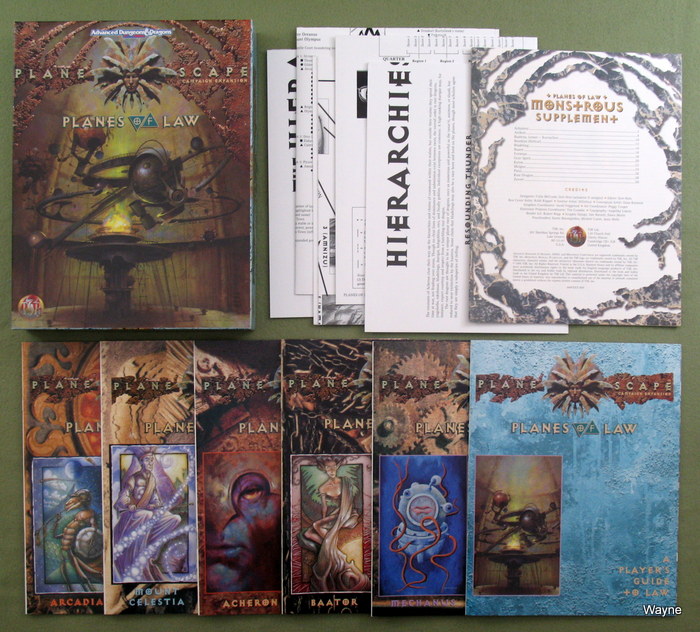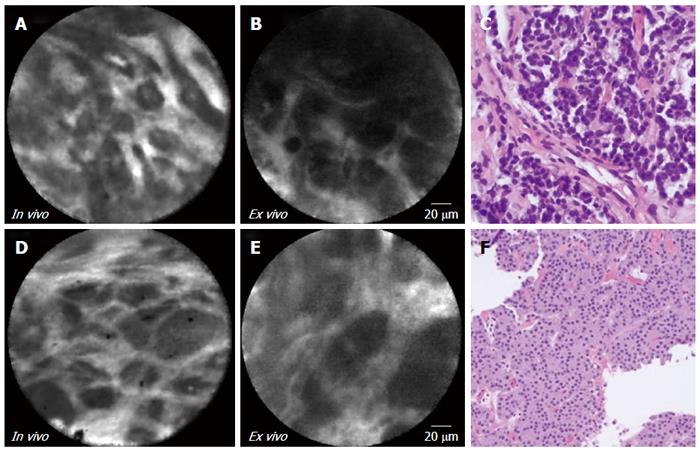2603 Planes Of Chaos Pdf
Contents • • • • • • • • • • • • • • • • • • • • • • • • • Development [ ] Planescape is an expansion of ideas presented in the Advanced Dungeons & Dragons (First Edition) and the original. When Advanced Dungeons & Dragons 2nd edition was published, a decision was made not to include or creatures, and so the cosmology was largely ignored. However, fan demand for a 2nd Edition Manual of the Planes was strong enough to justify its expansion into a full-fledged, and so in 1994 Planescape was released. [ ] developed Planescape when he was assigned to create 'a complete campaign world (not just a place to visit), survivable by low-level characters, as compatible with the old as possible, filled with a feeling of vastness without overwhelming the referee, distinct from all other TSR campaigns, free of the words 'demon' and 'devil' and explainable to Marketing in 25 words or less'. For inspiration, Cook listened to, and, read,, and, and for fun at 'Bad Movie Nights', watched such films as and.
TSR 2603 - Planes of Chaos - Book 1.
Cook came up with the idea that everything would revolve around, and that those factions would be ideas taken to the extreme. He also felt that came about because it was natural, because the planes needed a crossroads, and that the campaign needs a center which could be both a place for adventure and a place to hide, where characters could get to and from it quickly. Cook decided to adapt the Manual of the Planes because the older material made survival on the planes too difficult or complex; he ignored anything that complicated gameplay, which left the 'descriptions of twisted and strange creations'. Cook conceived of the look for the setting from images such as 'the gloomy prisons of 's Le Carceri etchings, and 's illustrations and surrealist art', and was assigned to draw whatever Cook wanted. 'Before any of us knew it, [Knutson] drew the. I'm very fond of the Lady of Pain; she really locks up the Planescape look. We all liked her so much that she became our logo.
Reception [ ] Planescape won the 1994 and has received critical acclaim for its unique visual aspects, especially the work of artists,, and. Pyramid magazine reviewer said Planescape is 'the finest ever produced for Advanced Dungeons & Dragons. Haring described the writing as 'wonderful,' also saying that it 'has got one of the most distinctive graphic looks I've seen in any game product' and that the 'unusual drawings remind [him] a little of.' Trenton Webb of British RPG magazine Arcane called Planescape 'the premier AD&D world', noting its hallmark as 'a bizarre juxtaposition of legend and nightmare'. Game designer said that the original had in a sense been 'reincarnated as the Planescape setting.


TSR's most ambitious campaign world to date. Abandoning the straightforward but dry approach of the Manual, the Planescape set reads less like a textbook and more like a story.
Characters take precedence over game systems, high adventure supplants the physics lessons.' Cosmology [ ]. Mufti Anas Younus New Naat 2014 Mp3 Free Download.
Main article: Sigil, the 'City of Doors', is located atop the Spire in the. It has the shape of a, and the city itself is located on the inner surface of the ring.
There is no sky, simply an all-pervasive light that waxes and wanes to create day and night. Sigil cannot be entered or exited save via portals. Although this makes it quite safe from any would-be invader, it also makes it a prison of sorts for those not possessing a portal key. Thus, many call Sigil 'The Bird Cage' or 'The Cage.' Though Sigil is commonly held to be located 'at the center of the planes' (where it is positioned atop the infinitely tall Spire), some argue that this is impossible since the planes are in all dimensions, and therefore there can never truly be a center to any or all of them.
Curiously, from the Outlands, one can see Sigil atop the supposedly infinite Spire. Factions [ ].
Main article: In 1998, TSR published Faction War, an adventure that effectively closed the book on Planescape as it was then ending the product line. The culmination of several adventures leading up to that point, the Faction War brought an end to the factions' control of the city. Instigated by the power-hungry Duke Rowan Darkwood, factol of the Fated, in a bid to dethrone the Lady and rule Sigil himself, the war spread throughout the city before the Lady of Pain, with the aid of a group of adventurers (the players' characters), intervened. Sects [ ] Sects are in many ways identical to the Factions, differing in that they are not based in Sigil. Sects are often highly specific to the particular planes they originate from, though historically many of the Factions were once Sects and some Sects were once Factions. A complete list of Sects is probably not possible due the infinite multitudes of the Planes. [ ] Rules [ ] There are three principles (or ) governing the world of Planescape: the Rule-of-Three, the Unity of Rings, and the Center of the Multiverse.
Rule-of-Three [ ] The first principle, the Rule-of-Three, says simply that things tend to happen in threes. Autocom Delphi 2013 R3 Keygen Idm. The principles which govern the planes are themselves subject to this rule.
Unity of Rings [ ] The second principle is the Unity of Rings, and notes that many things on the planes are circular, coming back around to where they started. This is true geographically as well as philosophically. [ ] Center of All [ ] The third principle (fitting neatly into the Rule-of-Three above) is the Center of All, and states that there is a center of everything — or, rather, wherever a person happens to be is the center of the multiverse. From their own perspective, at least.
As most planes are functionally infinite, disproving anyone's centricity would be impossible. In Planescape, this is meant philosophically just as much as it is meant in terms of multiversal geography. The fact that anywhere could be the center of the multiverse in this view also implies that nowhere can be said to be the de facto true and only center. This sparks a lot of arguments and violence since some people believe the City of Doors to be the center due to its uncommon number of portals to other planes and position in the Outlands and some factions also claim different centers, each with their own significance.
Published material [ ] The campaign setting was followed by a series of expansions detailing the (by and ), the Planes of Law (by and ), and the (by and ). Other expansions and adventures followed, as listed below. Upon the release of 3rd Edition, Planescape, along with most other settings, were discontinued, although fan sites such as planewalker.com were allowed to continue to use the material and update it to the new edition. The 3rd Edition, the 3.5 Edition, and the 2004 also used the general layout of the planes and some of the details from the setting, including Sigil, but these are not part of the Planescape line. Similar material has surfaced in 4th Edition rulebooks, as the Dungeon Master Guide 2 includes a section on Sigil. The 5th Edition Player's Handbook also contains a section explaining the planes and Sigil. The series had a small number of novels.
The novels were not generally well received. [ ] In 1995, Planescape won the for Best Graphic Presentation of a Roleplaying Game, Adventure, or Supplement of 1994. Main article: The setting was featured in the computer game, which portrayed the Planescape world (specifically Sigil, the,,, and the ). It is now a cult game and was out of print until its DVD re-release as a budget title in 2009. It was released as a download on in 2010 and soon became the 'second most wanted game' on the site.
An enhanced edition by was released on April 11, 2017. Marketed as a spiritual successor to Planescape: Torment, was released in February 2017. The game takes inspiration from but is not itself based in the Planescape setting. Collectible card game [ ].
Main article: TSR published a based on the Planescape setting called. The game featured major locations, personalities, and features of the Planescape setting and also introduced new creatures that were added to the role playing game setting as part of subsequent products.
Novels [ ] • Fire and Dust (1996), by, a rejected title that the author has since published as a free online manuscript. • Pages of Pain (December 1997), by, ( ) • Torment (October 1999), by Ray Vallese and Valerie Vallese, ( ) Torment is based on an early script of Planescape: Torment. Blood Wars Trilogy [ ] • (January 1996), by, ( ) • (June 1996), by J. Robert King, ( ) • Planar Powers (August 1997), by J. Robert King, ( ) See also [ ] • • References [ ]. • ^; Andrew Hartsock (August 1994).... Retrieved 2008-02-26.
Archived from on 2008-10-04. Retrieved 2005-08-20. • ^ Alloway, Gene (May 1994). 'Feature Review: Planescape'.. Academy of Adventure Gaming Arts & Design. Archived from on 2009-05-06. • Webb, Trenton (March 1996).
'Games Reviews'. • (July 1994). 'Role-playing Reviews'..: (#207): 51–52.
• Wilson, Johnny L. (April 1999). Retrieved April 16, 2016.
Retrieved 2007-10-02. • Planescape Campaign Setting pg.3 •.
•: Computer Game •. Retrieved 2017-03-30. • ^ (March 1999). 'Profiles: J.
Robert King'..: (#257): 120. External links [ ] • at Curlie (based on ) •: comic including basic information on Planescape •: Ongoing Planescape webcomic (since 2005) •: New ongoing Planescape webcomic •: Planescape collector's product list and forums •: an expanded, reasonably comprehensive guide to products released for the Planescape setting.